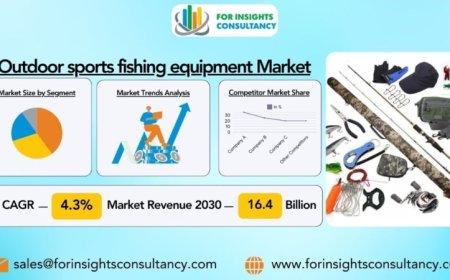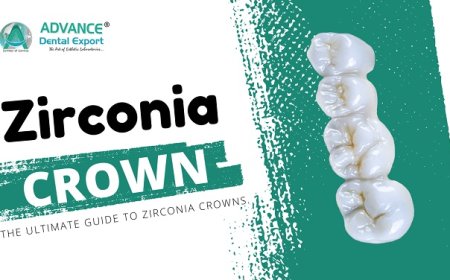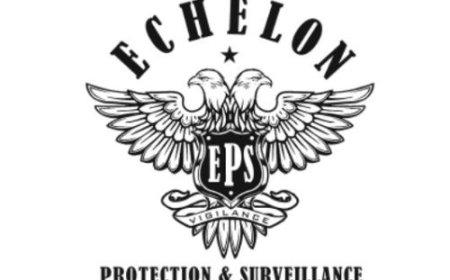How Blockchain is Powering the Next Generation of Healthcare Apps
Whether it's creating decentralized medical records or enabling the next wave of Web3 health app innovations, blockchain is reshaping healthcare from the ground up.

The healthcare industry is undergoing a digital transformationand blockchain is leading the charge. From enhancing data security to empowering patients with control over their health information, blockchain is no longer just a buzzword. Today, the blockchain healthcare app is emerging as a game-changing solution for secure, interoperable, and patient-centric healthcare systems.
As data breaches, fragmented systems, and identity fraud continue to plague the medical world, blockchain offers a decentralized and transparent alternative. It brings integrity, security, and trust into a domain that sorely needs it. Whether it's creating decentralized medical records or enabling the next wave of Web3 health app innovations, blockchain is reshaping healthcare from the ground up.
If you also want to leverage the power of blockchain in building a great healthcare application, partnering with a mobile app development company in Los Angeles can be your ideal move. With professionals on board, they can certainly help you scale and grow.
Why Traditional Health Apps Are Falling Short
The average patient interacts with multiple healthcare providers, insurers, and pharmacies. Yet their medical data is often scattered across different systems. This fragmentation leads to inefficiencies, duplicate testing, misdiagnoses, and delays in care.
Moreover, data breaches are alarmingly common. In 2023 alone, over 133 million healthcare records were exposed in the U.S., according to the U.S. Department of Health and Human Services. Traditional databases are centralized and vulnerable to cyberattacks. Once breached, sensitive patient information becomes impossible to protect retroactively.
This is where the blockchain healthcare app model stands out.
What Makes Blockchain Ideal for Healthcare Apps?
A blockchain healthcare app leverages the core strengths of distributed ledger technology: decentralization, immutability, encryption, and smart contracts. These features make it perfectly suited for storing and managing sensitive healthcare data.
1. Data Integrity & Immutability
Blockchain ensures that once a patients data is recorded, it cannot be altered or tampered with. This provides an auditable trail of medical records, crucial in legal or insurance disputes.
2. Decentralized Medical Records
Instead of being siloed in different EHR systems, patient records can be stored as decentralized medical records across a permissioned blockchain. This allows for real-time, cross-institutional accesswhile patients retain full control over who sees what.
3. Privacy & Security
Using cryptographic techniques like zero-knowledge proofs and private key authentication, a blockchain healthcare app can safeguard user identities and protect PHI (protected health information) without compromising accessibility.
4. Interoperability
Blockchain allows diverse systems (hospitals, clinics, labs, insurers) to interact on a common framework without needing to overhaul legacy systems. Thats a major leap toward universal health record access.
Real-World Applications of Blockchain in Healthcare Apps
Patient-Centric Data Control
In a traditional system, patients must request their recordsoften via fax or email. In contrast, a blockchain healthcare app lets patients store, access, and share their health data instantly through secure digital wallets. Every access request is logged on-chain, ensuring transparency and auditability.
This paradigm aligns perfectly with the principles of Web3 health apps, where usersnot institutionsown their data.
Secure Clinical Trials & Research
Blockchain is revolutionizing how clinical trials handle data. From consent forms to real-time trial data and protocol adherence, every step can be logged immutably. This not only improves accountability but also enhances transparency with participants and regulators.
Healthcare apps that cater to researchers can use smart contracts to automate milestone-based funding or ensure data blinding, all while maintaining regulatory compliance.
Medication Traceability & Prescription Management
Pharmaceutical counterfeiting costs the industry over $200 billion annually. A blockchain healthcare app can trace a drug's journey from manufacturer to pharmacy, ensuring its authenticity and preventing fraud.
Patients can also use blockchain-powered apps to verify prescriptions, set refill reminders, or even receive smart contracts that auto-renew medications when clinically appropriate.
How Web3 is Driving the Next Wave of Healthcare Innovation
The rise of Web3 health apps adds another layer to this transformation. Web3 emphasizes decentralized, user-owned systemsaligning perfectly with the ethos of modern healthcare reform.
In a Web3-driven blockchain healthcare app, users could:
Monetize anonymized data for research (with full consent)
Join decentralized autonomous organizations (DAOs) focused on rare disease communities or health equity
Earn tokens for healthy behavior (steps, nutrition logging, medication adherence)
These features add engagement and incentive layers, helping users stay invested in their own well-being while contributing to larger health ecosystems.
Challenges to Blockchain Adoption in Healthcare
Despite its promise, building a blockchain healthcare app isnt without hurdles:
Regulatory uncertainty: HIPAA, GDPR, and local health regulations vary. Developers must build compliance into smart contracts and off-chain data storage.
Scalability: Blockchain transactions can be slow or expensive at scale. Layer-2 solutions or hybrid architectures are often necessary.
User experience: Concepts like private keys, seed phrases, and wallets are foreign to most users. Simplifying UX without compromising security is key.
A successful blockchain healthcare app balances technical innovation with real-world usability.
Building Your Own Blockchain Healthcare App: What to Consider
Before jumping into development, define the core problem your app will solve. Are you targeting data portability? Fraud prevention? Research transparency?
Then choose a blockchain framework that fits:
Ethereum / Polygon for smart contract flexibility
Hyperledger Fabric for enterprise-grade permissioned networks
Solana or Algorand for fast, low-cost transactions
Finally, dont overlook compliance. Work with legal advisors and regulators early in your development process. Build data minimization, consent flows, and off-chain storage strategies into your architecture.
Collaborating with a healthcare-savvy development teamideally a specialized mobile app development companywill make a world of difference in navigating these technical and regulatory nuances.
Final Thoughts
Blockchain is more than a buzzwordits becoming a fundamental part of how we build secure, ethical, and patient-first healthcare solutions. From decentralized medical records and encrypted patient data to programmable smart contracts and Web3-powered engagement, the blockchain healthcare app is unlocking a new standard for trust and innovation in digital health.
As healthcare continues its shift toward personalized, data-driven care, blockchain will be the bedrock on which these systems run. For founders, developers, and health innovators, now is the time to invest in this transformative technology and partner with a leading mobile app development company to reimagine what a healthcare app can truly do.






































